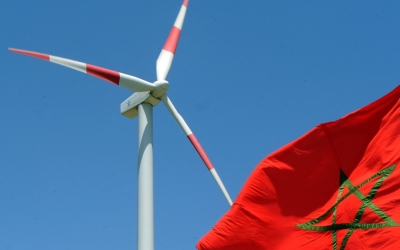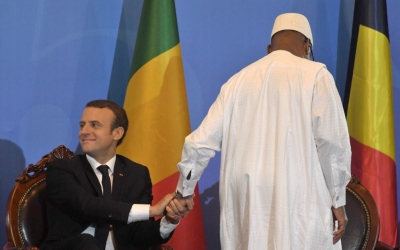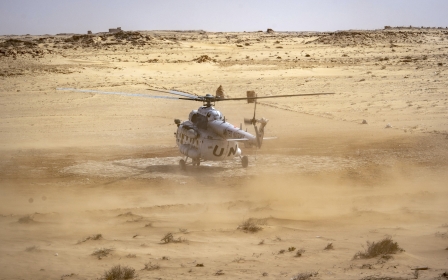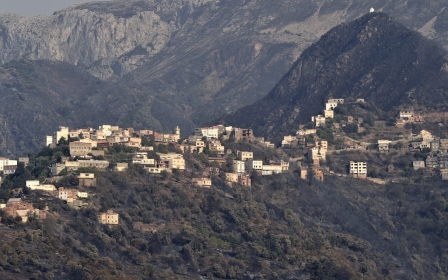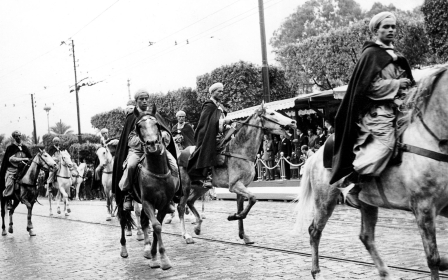Algeria elections: Apathy reigns as voters remain disillusioned with the state

Algeria voted on Saturday in local elections seen as key in President Abdelmadjid Tebboune's push to turn the page on the two-decade rule of late president Abdelaziz Bouteflika.
But despite official campaigns urging Algerians to "make their mark", the ballot for municipal and provincial councils has sparked little public interest among the more than 23 million eligible voters.
New MEE newsletter: Jerusalem Dispatch
Sign up to get the latest insights and analysis on Israel-Palestine, alongside Turkey Unpacked and other MEE newsletters
Turnout was 35.97 percent for the municipal ballot and 34.39 percent for the provincial vote, with around eight million Algerians turning up at the polls, election authority ANIE said. Counting began on Saturday evening, with results expected in coming days.
The somewhat paltry turnout still surpassed that of legislative elections held in June, when only 5.6 million of the 24 million eligible voters - around 23 percent - voted, in the country's lowest ever electoral participation rate.
Unconvinced abstentionists
The election is the third vote in Algeria under Tebboune, who has vowed to reform state institutions inherited from Bouteflika, who was driven from power by the Hirak pro-democracy protest movement in April 2019.
Tebboune was elected in a contentious, widely boycotted 2019 ballot months after Bouteflika stepped down under pressure from the army and Hirak rallies.
He has vowed to break with past elections marred by widespread claims of fraud.
Tebboune had called the election "the last step in building a modern state", and promised an "economically strong" nation as he cast his ballot.
Algeria's local assemblies elect two-thirds of the national parliament's upper house, with the president appointing the remainder.
But campaigning had been muted, despite calls by authorities for Algerians to take part if they "want change".
The North African country's rulers are trying to "impose their will despite the embarrassing results of previous elections," analyst Mohamed Hennad told AFP.
Omar, an engineer, said he would not cast a ballot. "Nothing will change," he said.
Yacine, a teacher, said he was voting for rivals of the current Algiers mayor, "even if I have no illusions" that they will be better.
For newspaper El Watan, "the elections, despite their local character, have not brought in crowds” - a sign, the publication argued, that voters “still don’t trust the electoral process”.
Diplomatic tensions
Redouane Boudjemaa, a journalism professor at the University of Algiers, said the vote was simply "an attempt to clean up the facade of local councils by changing their members, to benefit the ruling class".
Boudjemaa added that politics were "limited to slogans proclaiming that the country has entered a new era, while all indicators point to the contrary".
Tebboune, who was a prime minister under Bouteflika, pushed through an amended constitution in November 2020, approved by less than 24 percent of the electorate, and oversaw a parliamentary election that saw just 23 percent of voters take part.
His rule has seen a crackdown on journalists and Hirak activists, even as he has packaged major policy moves in response to calls by the protest movement for reform.
He has also faced a diplomatic crisis with Algeria's ex-colonial ruler France, and is embroiled in another with neighbouring Morocco.
Algiers severed diplomatic ties with Rabat in August over "hostile actions" - accusations Morocco has dismissed - amid tensions over the disputed territory of Western Sahara.
Boudjemaa said the main issue at stake was the "huge economic and social challenges" ahead, but warned the ruling elite "has neither the vision nor the strategy to respond to the crisis".
Middle East Eye delivers independent and unrivalled coverage and analysis of the Middle East, North Africa and beyond. To learn more about republishing this content and the associated fees, please fill out this form. More about MEE can be found here.


